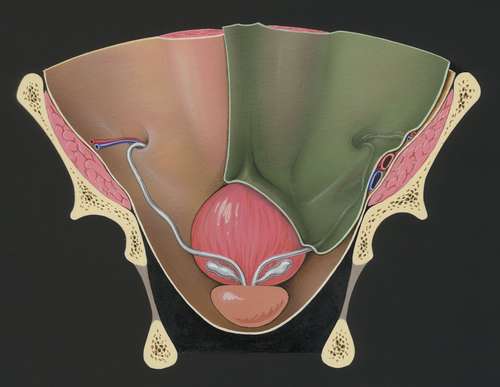The recent FDA decision to remove black box warnings from hormone replacement therapy (HRT) products has stirred both conversation and relief among healthcare providers and women alike. Many have wondered about the implications of such a change and how it might impact the management of menopause. It almost feels like a breath of fresh air for those who have long battled the discomforts of menopause symptoms such as hot flashes and mood swings. After years of cautious use under stringent guidelines, the regulatory update signals an important shift in medical guidelines, suggesting that these treatments are safe under prescribed conditions.
People now have renewed hope that access to hormone therapy might not be as limited as before. The decision, backed by extensive research and clinical data, reveals a thoughtful reevaluation of the risks associated with HRT products. This is not just a win for the medical community but also a turning point for millions of women who have had to weigh the benefits of symptom relief against potential long-term dangers.
The Science Behind the Shift
The FDA has taken a significant step forward with this regulatory update. In the wake of new studies and rigorous research, experts are now confident that hormone replacement therapy is safe for most women undergoing menopause. This section walks us through the nuances of how the safety profile of these products has been reexamined and ultimately found to be more favorable than once thought.
In the past, HRT came with a heavy warning tag in the form of black box warnings, which mostly alarmed both patients and physicians. However, new research indicates that the benefits of hormone therapy in managing menopause symptoms far outweigh the risks when taken appropriately. Several studies have highlighted improvements in women's quality of life, particularly in alleviating mood swings, hot flashes, and even preventing osteoporosis. With updated recommendations, hormone therapy has now earned a new stamp of approval from the FDA.
On a personal note, many women have shared stories of significant improvement in their daily lives once they began hormone therapy. The enhanced research methodologies and prolonged observation periods have contributed to a robust safety data set. Imagine a road that was once bumpy now paved smoother with promise and clear direction. Medical experts and regulatory bodies have cleared a path forward, making HRT an accessible option once again. It’s a testament to the power of persistent scientific inquiry and the evolution of medical research.
Implications for Women’s Health
This breakthrough has significant implications for women across the United States and beyond. With the FDA's approval removing the extreme caution previously attached to HRT, women now have more freedom to seek effective menopause treatment. The shift is expected to ease the stigma and fears tied to hormone replacement therapy, paving the way for broader usage and improved health outcomes.
For many women, menopause is a challenging phase that brings not only physical changes but also emotional and psychological stress. Removing the regulatory hurdles by eliminating black box warnings means that healthcare providers can tailor treatments more confidently. The new guidelines are likely to result in enhanced doctor-patient conversations, where risks and benefits are weighed with clearer, less intimidating language. This personalized approach means women can explore hormone therapy without the overwhelming fear of adverse reactions.
Every narrative in women's health is unique. Some patients, who once harbored misgivings about initiating HRT because of the celebrated black box warnings, may now approach treatment with curiosity and cautious optimism. Although every treatment carries its own set of considerations, the FDA’s decision is a nod to both scientific progress and the nuanced understanding of patient needs. It's not just about prescribing medication; it's about empowering women to take control of their health decisions with confidence.
Looking Ahead: The Future of Hormone Replacement Therapy
As we celebrate this regulatory update, it’s important to consider what the future holds for hormone replacement therapy and menopause management. With the FDA's recent announcement, it seems likely that more research and development will follow, driving a new wave of innovations in women's health products. The removal of black box warnings is just the beginning—a stepping stone for additional improvements in medical guidelines.
The horizon for HRT is promising. Healthcare professionals are expected to adopt a more proactive approach, focusing on individual risk profiles rather than generalizing treatment options based on outdated warnings. There is a growing belief that personalized hormone therapy can be optimized to meet the specific needs of each woman, balancing efficacy with safety in a more tailored fashion. This update creates a platform for further studies and advancements.
However, it’s also important to remember that the decision does not mean HRT is a one-size-fits-all solution. In practice, doctors continue to carefully assess each patient's overall health. The focus remains on ensuring that hormone therapy is prescribed after a thorough understanding of potential risks and benefits. Women experiencing severe symptoms should still have detailed discussions with their healthcare provider before starting any new treatment regimen. In this way, safety and careful monitoring remain paramount.
Real-Life Impact: Stories and Perspectives
The stories coming in from women and practitioners highlight the real-world impact of this change. Many women view this update as a confirmation of what they have experienced firsthand during menopause—the real relief from persistent hot flashes and mood swings that were previously difficult to manage. Hearing these stories makes it easier to understand why this regulatory change matters so deeply.
One common comment among women who have benefited from hormone therapy in recent years is the desire for more accessible treatment options. Now, with the removal of the intimidating black box warnings, doctors are more empowered to recommend HRT as a safe and effective treatment. It’s as though a heavy weight has been lifted from the shoulders of millions of women who have long endured the challenges of menopause management. Their personal journeys and feedback have contributed to the growing body of evidence supporting regulatory changes.
The new guidelines reinforce that hormone therapy, when used correctly, plays a vital role in women's health. They open the door to innovative treatment approaches and stimulate further research funding for more targeted therapies. For those who are on the cusp of exploring hormone therapy, this decision is a source of optimism. It's a reminder that science evolves and adapts with time, all in the service of better healthcare outcomes.
The FDA approval and the removal of the black box warnings reflect a transformation in how we view prescription medications for menopause. The landscape of women's health is changing quickly, and this update is a pivotal moment in that journey. It encourages more informed conversations between patients and their healthcare providers, sparking a broader discussion on the benefits of well-managed hormone replacement therapy.
In conclusion, the FDA's action on HRT is not just a regulatory update; it’s a milestone in menopause treatment. It paves the way for more informed, confident healthcare decisions and embodies a forward-thinking approach to women’s health. This adjustment in guidelines embodies a comprehensive effort to harness new research to better address the needs of women during one of life’s significant transitions. With renewed optimism, both patients and healthcare professionals are now stepping into a future where hormone therapy is a safe and empowering option for managing menopause symptoms, ensuring that wellness is within reach for all who seek it.




